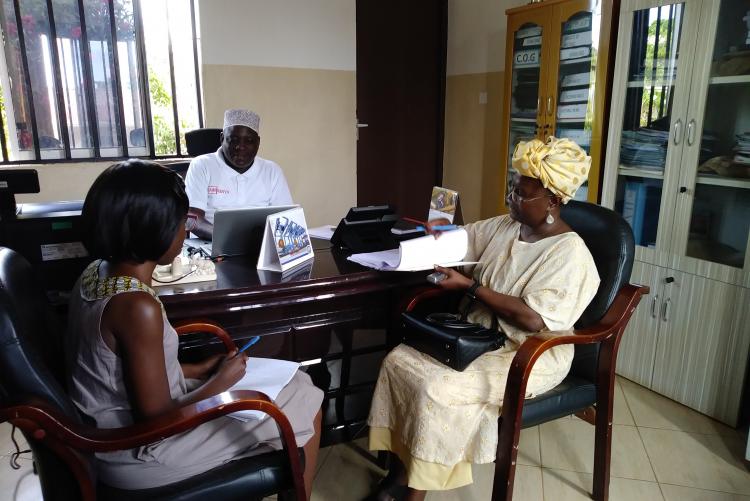Three FGDs conducted with the youth leaders in; Dagoretti South, Embakasi South and Westland’s. Each of the three counties demonstrated their upper hand in all research issues of investigation. A total of nine Focus Group Discussions (FGDs) and five Key Informant (KI) interviews were conducted. In each of the three sub counties three sets of youth groups which included youth in organized groups (YOGs), youth not in groups (YNOGs) and youth leaders (YL), were given platforms to discuss pertinent research issues. This approach was taken to ensure that voices of the youth are heard, those not in groups who are often forgotten as development programmes take a group approach.
Majority of the youth were more aware of the Constitutional principles and provisions, knew development actors within their sub- counties and were largely in touch with them, with several of them having a chance to participate in sub-county decision making forums such as the budget forum, CDF discussions and various development issues. These are positive aspects expected of leadership, but the failure of these youth leaders, is their inability to leverage participation space for other youth. Research findings revealed that youth leaders have access to powerful political leaders and senior government administrators, but it does not translate into benefits for other youth. They use access to power for self-interest with minimal benefit to the youth, although the leaders also argued that they are not effectively included in decision making and development of their sub-counties.
The issues covered in the study included the following: understanding of the Constitution of Kenya, youth organizations ‘operations, priority needs of youth and how priorities are being addressed, participation of young people in decision making, advocacy, transparency, accountability, and management of resources, national cohesion, justice, peace, rule of law and human security and delivery of civic education focusing on governance, leadership.
Understanding of the Constitution 2010: FGD participants noted that majority of the youth have not read the Constitution and should be educated. Bill of rights seems to be the most known with a few others having read Chapter six on Leadership and Integrity. Participants who were knowledgeable, observed that the Kenya Constitution is the most progressive in Africa but continual awareness creation on the Constitution is required for the youth. Youth are very active and vibrant within the City County of Nairobi and are engaged in many activities which cut across socio-cultural, economic, political and environmental issues.
The priority needs: priority needs of the youth in Nairobi sub county like many other youths elsewhere is employment opportunities, skill training, halls and open spaces, addressing drug abuse and crime, services as well as involvement in leadership and governance. Nairobi youth concluded that the youth are not being effectively supported. The overarching issue in the discussions was the need for resources dedicated to youth activities to be managed by the youth and those who understand youth issues.
Mismanagement of resources: the youth felt that mismanagement of resources, lack of integrity and corruption among state officers hinder efforts to fight for the needs of the youth.
Inclusivity in Decision making: Several measures have been put in place aimed at ensuring youth inclusion in decision making within the County. Such measures include the establishment of the Youth Council and requirement for youth inclusion in all organs of governance including Parliament, County Assemblies, commissions and independent offices.
The youth in Nairobi like other Kenyans are struggling to embrace these principles, although they participate in several activities. which promote the principles. In their analysis their desire to fully embrace the principles is often derailed by politicians who divide the youth on ethnic grounds and in sharing of resources.

